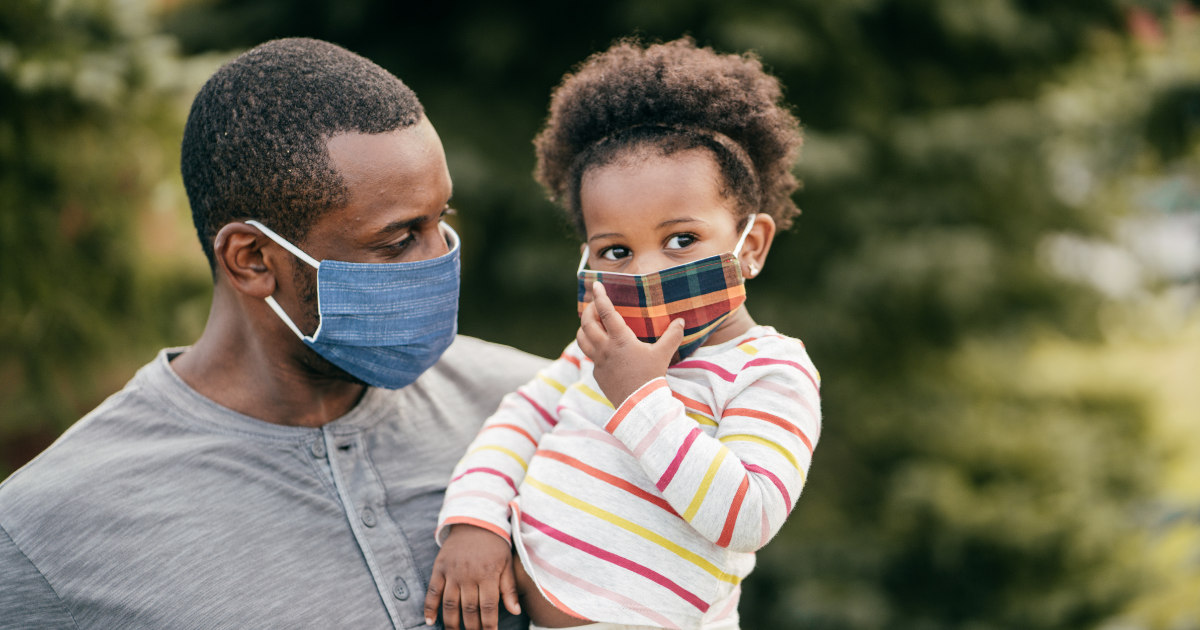Just like vaccines for adults, COVID-19 vaccines for children and teens must undergo clinical trials to ensure that they are safe and effective. As of early January 2022, children ages 0 to 17 account for 15.8% of COVID-19 cases in the United States, according to the Centers for Disease Control and Prevention (CDC). Sadly, 1,040 children in this age group have died from the virus. Studies have shown that COVID-19 vaccines help prevent infection and lessen the severity of illness. However, the vaccine isn’t available for all age groups—yet. Here’s what you need to know.
Don't have time to read? Listen to the blog here!
COVID-19 vaccines for children 2 to 5 years of age
“Currently, the COVID-19 vaccines that are available aren’t authorized for children under 5 years of age,” said Zachary Hoy, M.D., pediatric infectious disease specialist at Pediatrix | Nashville Pediatric Infectious Disease, part of the Mednax®, Inc. family. “Vaccine manufacturers are evaluating COVID vaccine safety in children ages 6 months to 5 years. These studies are ongoing and have not been approved.”
Pediatricians hoped that a vaccine for young children would be released in January 2022. However, in late December, researchers investigating the two-dose regimen for young children reported that it wasn’t as effective as other regimens. The effectiveness of the pediatric COVID-19 vaccine was tested by drawing blood from the children enrolled in the clinical trial and testing their antibody response after they received the vaccine.
“These studies have been carefully done due to the variety of weights and vulnerability of these small children,” explained Kristina Deeter, M.D., a pediatric intensivist and specialty medical officer for pediatric critical care medicine at Pediatrix. “In the 6-month to 2-year-olds tested, there was a good level of immunity produced. However, in the 2- to 5-year-old population, the expected, necessary level of immunity was not seen. Because of this, a third dose has now been added to the vaccine series for this age group.”
Because the clinical trial has been amended to now include a third dose at least two months after the second dose, it will take researchers time to review the outcomes and safety profile of this three-vaccine series, further delaying approval.
“It’s difficult to predict if this change will mean that children in this age group will need three doses or if they will have a certain level of protection after two doses, which would be enhanced with a third dose,” said Dr. Hoy. “It will likely take a few months to get enough data to make more specific recommendations.”
If the three-dose study is successful, Pfizer/BioNTech said they expect to apply for Emergency Use Authorization (EUA) for children 6 months to under 5 years of age in the first half of 2022.
COVID-19 vaccines for children 5 years old and older
The CDC recommends everyone 5 years old and older get a COVID-19 vaccine to help protect against COVID-19.
In November 2021, the CDC endorsed the U.S. Food and Drug Administration’s (FDA) approval for children ages 5 through 11 to receive the Pfizer-BioNTech vaccine. Then, on Jan. 3, 2022, the agency authorized a third shot for children in this age group who are immunocompromised.
The FDA also authorized a third dose of the Pfizer/BioNTech COVID-19 vaccine in early January for children ages 12 to 15. It recommends that this age group gets the third dose five months after their second dose instead of the originally recommended six-month timeframe.
Advice for parents
For parents who are hesitant to vaccinate their children, Dr. Hoy says to discuss the issue with someone who understands your child’s specific medical needs: his or her pediatrician.
“I encourage parents to write down their specific questions about the COVID vaccine for children and schedule an appointment with their child’s pediatrician for a vaccine discussion visit,” he said. “This way, the pediatrician can devote the entire visit to discussing your specific vaccine-related questions.”
These appointments can often be done via telehealth or telephone.
He also recommends talking to parents of vaccinated children to learn more about the potential side effects your child may experience. “This helps parents understand how the vaccine process works and what to expect when their child gets vaccinated,” he explained.
The federal government provides the COVID-19 vaccine free of charge to all people living in the United States, regardless of immigration or health insurance status. To find a vaccine administration site near you, visit vaccines.gov, text your ZIP code to 438829 or call 1-800-232-0233.
